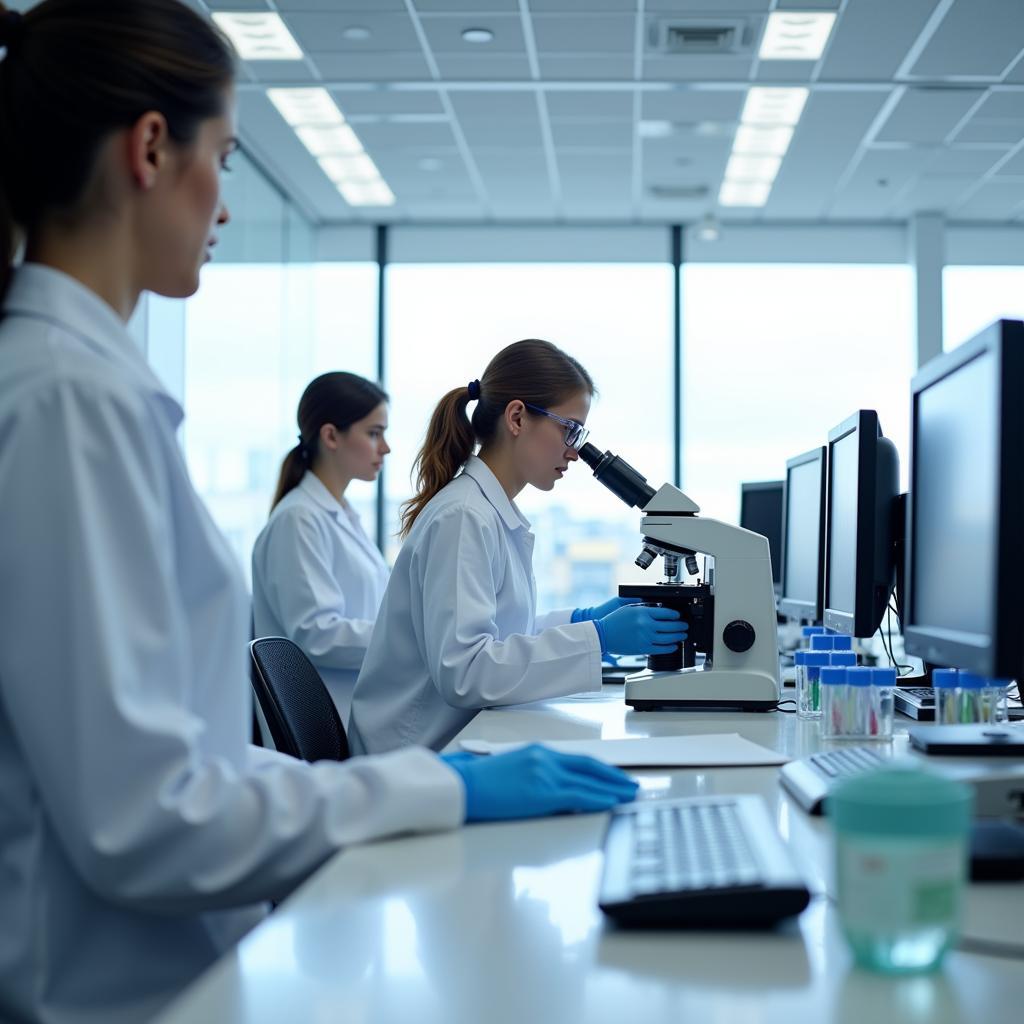The American Society For Histocompatibility And Immunogenetics (ASHI) plays a vital role in advancing the science and application of immunogenetics, particularly in transplantation. This article delves into the significance of ASHI, exploring its impact on patient care, research, and education within the field.
The Crucial Role of ASHI in Transplantation
ASHI serves as a crucial hub for professionals dedicated to histocompatibility and immunogenetics. The society fosters collaboration, facilitates knowledge sharing, and promotes best practices in the field. This contributes significantly to improving the outcomes of organ and bone marrow transplantation. Understanding the intricacies of the immune system and tissue compatibility is fundamental for successful transplantation, and ASHI is at the forefront of these efforts.
One of ASHI’s primary focuses is on ensuring the quality and standardization of HLA (Human Leukocyte Antigen) testing. Accurate HLA typing is essential for matching donors and recipients, minimizing the risk of rejection. ASHI provides educational resources, training programs, and accreditation services to laboratories performing these critical tests, helping to uphold the highest standards of practice.
 ASHI HLA Testing Laboratory
ASHI HLA Testing Laboratory
ASHI’s Impact on Patient Care
The work of ASHI directly impacts patient care by promoting safer and more effective transplantation procedures. By developing and disseminating best practices, ASHI helps ensure that patients receive the most appropriate and individualized treatment. This commitment to quality significantly improves patient survival rates and quality of life following transplantation. The society also advocates for patient access to innovative therapies and diagnostic tools.
Furthermore, ASHI supports research aimed at improving transplantation outcomes. By funding research grants and fostering collaboration among scientists, ASHI contributes to the development of new techniques and technologies that advance the field. This dedication to research leads to a better understanding of the complexities of the immune system and its role in transplantation.
Education and Training: The Cornerstone of ASHI’s Mission
Education is a cornerstone of ASHI’s mission. The society offers a wide range of educational programs, including workshops, webinars, and an annual meeting, that provide professionals with the latest advancements in the field. These programs are designed to enhance the knowledge and skills of healthcare professionals involved in transplantation, ultimately benefiting patients. ASHI also plays a crucial role in training the next generation of immunogeneticists, ensuring the continued growth and development of the field.
What are the benefits of ASHI Certification?
ASHI certification demonstrates a professional’s commitment to excellence and adherence to the highest standards in histocompatibility and immunogenetics. It provides credibility and recognition within the field, enhancing career opportunities.
ASHI’s Future Directions
The American Society for Histocompatibility and Immunogenetics continues to evolve and adapt to the changing landscape of transplantation. The society is actively involved in research exploring new frontiers in immunogenetics, such as personalized medicine and immunotherapy. These advancements hold immense promise for improving the lives of transplant recipients. ASHI is also committed to expanding its global reach, fostering collaboration with international organizations and promoting access to quality healthcare worldwide.
american society of histocompatibility and immunogenetics
Conclusion
The American Society for Histocompatibility and Immunogenetics plays an indispensable role in the field of transplantation. Its commitment to quality, education, and research significantly impacts patient care and drives innovation. ASHI continues to be a leading force in advancing the science of immunogenetics, bringing hope to transplant recipients and shaping the future of transplantation.
FAQ
-
What does ASHI stand for?
ASHI stands for the American Society for Histocompatibility and Immunogenetics. -
What is the primary focus of ASHI?
ASHI’s primary focus is to advance the science and application of immunogenetics, especially in transplantation. -
How does ASHI impact patient care?
ASHI promotes safer and more effective transplantation by ensuring high standards in HLA testing and advocating for patient access to innovative therapies. -
What educational opportunities does ASHI offer?
ASHI offers workshops, webinars, an annual meeting, and other programs to educate professionals on the latest advancements in the field. -
Why is ASHI certification important?
ASHI certification demonstrates a professional’s commitment to excellence and adherence to the highest standards in the field. -
What is the future direction of ASHI?
ASHI is actively involved in research exploring new frontiers like personalized medicine and immunotherapy, aiming to improve transplantation outcomes further. -
How can I become a member of ASHI?
Information on membership can be found on the ASHI website.
If you need further support, please contact us at Phone Number: 02043854663, Email: [email protected], or visit our address at Zone 34, Bac Giang, 260000, Vietnam. We have a 24/7 customer service team.